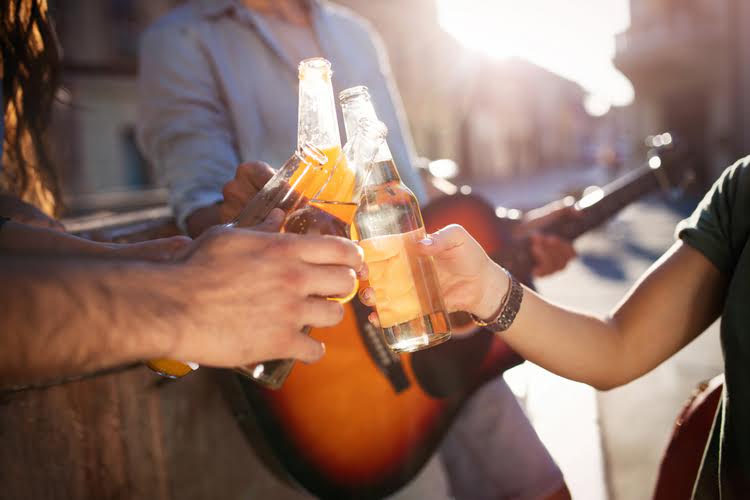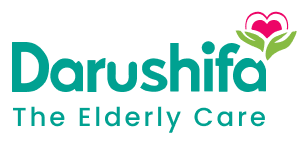When we examined men and women separately, Impulse Control Difficulties remained significant only for men. Men with higher PTSD symptoms may have a higher level of impulsivity that leads to reckless behaviors such as risky alcohol use. An exposure variable equal to the number of assessments completed each day was included and hence the models estimate a rate.
En Bloc Blackouts
Survivors of trauma often deal with intense emotions and constant stress, making alcohol appealing as a way to numb their emotional pain. Trauma may also lead to risky behaviors, like binge drinking or self-medicating, to cope with the anxiety and fear linked to PTSD. Treatment should always start with education, therapy, and, in regards to alcohol, support programs that address drinking https://ecosoberhouse.com/ problems in a personally acceptable way. Twelve step programs are commonly used and effective but they may not be the best fit for everyone’s personal beliefs.
- Women may possibly benefit from interventions that focus on difficulties engaging in goal-directed behavior, while men may benefit from interventions that target impulse control difficulties when upset.
- The 2-item version of the Patient Health Questionnaire was used to assess symptoms of depression in the past 2 weeks (Kroenke et al., 2009).
- Imagine the frustration of trying to solve a jigsaw puzzle with missing pieces – that’s what it feels like to grapple with gaps in your memory.
- Many people who are in a blackout can still eat, talk, walk, and perform other various activities.
- These can lead to temporary lapses in memory and consciousness that leave you feeling like you’ve missed a crucial plot point in the movie of your life.
What Are Meth Comedown Withdrawal Symptoms
Undergraduate students reporting 1+ heavy drinking episode (4/5+ drinks for women/men) in the past month were randomly assigned to one of three feedback groups. The third group received feedback comparing the number of hours per week they spent texting, using social media, and watching TV to the hours that other college students on campus engaged in each of those behaviors (control group). Assessments were completed in person at baseline and from remote locations at 3 and 6 months. Of the 603 participants who completed the baseline assessment (47% male, 39% White; see Table 1), 91% completed the 3-month assessment and 90% completed the 6-month assessment.
- According to them, almost 8% of veterans on a military operation suffered from PTSD, while 11% misused alcohol, compared to 5% and 6% of non-veterans, respectively.
- Think of these strategies as your personal shield and sword in the battle for mental clarity.
- This practice will help you shift your focus towards self-compassion, nurturing a positive outlook on your journey.
- Supermarkets offer a variety of choices, and platforms like The Wise Bartender provide a wide selection.
How to Handle and Prevent PTSD Blackouts

Calls to any general helpline will be received by The Healing Place, a paid advertiser. We’re here 24/7 to help guide you or your loved on through rehab and recovery. Treatment options for PTSD and AUD begin with a comprehensive assessment to determine the intensity and types of treatments that will be most beneficial. A treatment plan outlines the continuum of care, starting with the highest level and progressing down through discharge and aftercare.
Who Is at Risk of Being Blackout Drunk?
In the analyses, an exposure variable equal to the number of completed assessments accounted for individual differences in response rates. Previous research with similar item sets support the criterion validity of the protocol (Simons et al., 2005; Simons et al., 2018; Simons, Wills, et al., 2016). Each random prompt included a checklist of 15 dichotomous DSM-IV PTSD symptoms occurring in the past 30 minutes. Reframe supports you in reducing alcohol consumption and enhancing your well-being. The Reframe app equips you with the knowledge and skills you need to not only survive drinking less but thrive while drug addiction treatment you navigate the journey.
Sunnyside is a private, anonymous way to start improving your relationship with alcohol. Know the situations or emotions that may lead you to drink excessively, and take steps to manage them without relying on alcohol. Surround yourself with friends and trusted individuals who will hold you accountable. Blackouts aren’t just about missing memories—they come with significant risks that can impact health and safety. Participants indicated if they identified as male, female, transgender, non-binary, other, or preferred not to respond.
Supporting Long-Term Recovery
Early intervention can prevent alcohol use from spiraling out of control, and offer healthier ways to cope with trauma. In fact, research shows that people with PTSD are significantly more likely to develop substance use disorders (SUDs), including alcohol use disorder (AUD). Studies estimate that about 30-60% of individuals with PTSD also struggle with substance abuse. This dual diagnosis, known as co-occurring disorders, presents unique challenges because each condition can ptsd alcohol blackout worsen the other.

Waking up with little to no memory of what you did the night before can be a disconcerting experience. But the potential harm from an alcohol-induced blackout isn’t limited to worrying that you might have embarrassed yourself. Both types of blackouts cause anterograde amnesia, meaning they affect the formation of new memories. They are unlikely to destroy memories that a person has already made and stored, which is known as retrograde amnesia. Handling and preventing PTSD blackouts might seem daunting, but with the right knowledge and continual professional guidance, it’s a journey that can be effectively managed. Should you require more information and resources, click here to get in touch with us at Aura Institute.
